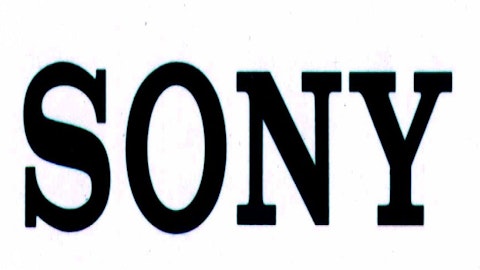
Economic effect

Source: YCharts
Since the beginning of 2013, the Bank of Japan has increased its outstanding reserves by 48.85%. While this was happening the iPath JPY/USD Exchange Rate ETN has declined by 7.65%. The central bank has increased the size of its asset purchase program in order to improve the GDP growth of the sluggish economy.
I anticipate the iPath JPY/USD exchange rate ETN to continue to decline in valuation over the next several years due to Japan’s continued pursuit of inflationary monetary policy. The Japanese central bank is hoping to keep the value of the Japanese Yen depressed in order to increase its exports, which directly contributes to the country’s GDP.
In the first quarter of 2013, the Japanese economy was able to log a 0.40% gain in its GDP. Implying that its inflationary monetary policy is at least increasing its GDP over the short-term, which will encourage the continued use of expansionary monetary policy.
The asset purchase program has decreased the value of the Japanese Yen against the United States dollar by 7.65%. This may not sound like much, but in the world of foreign exchange it’s humongous, especially over the course of five months. Putting this in perspective I included a five-year chart of the USD/JPY currency pair.

Source: FreeStockCharts
Japanese ADRs report their financial results in Japanese Yen, and as a result the companies will be able to generate inflated earnings growth for the quarter.
Inflated growth
The inflated growth had a considerable impact on the financial performance of Japanese American Depository receipts. For example, in Sony’ most recent quarterly earnings report the company was able to report a profit for the first time in five years. Now to be fair, Sony also reported significant growth in its mobile division, which helped to boost the valuation of the company. The company added to that strength in performance through the strength of its lending practices in Japan.
Sony Corporation (ADR) (NYSE:SNE) reported a 314.1% improvement in its operating income. The company’s year-over-year revenue growth of 4.7% was enough to make a significant improvement on its bottom line operating income (it went from having negative operating income to a positive operating income, which was driven by currency market fluctuations). Sony Corporation (ADR) (NYSE:SNE)’s share price has appreciated by 74.54% since the beginning of 2013.
Toyota Motor Corporation (ADR) (NYSE:TM) Company reported an 18.7% increase in revenue in its latest quarterly release. The company also reported a 239.3% increase in its net-income. To be fair, the company reported strong durable goods demand, which was also reflected in Ford’s earning report. The USD/JPY currency market manipulation helped to boost Toyota Motor Corporation (ADR) (NYSE:TM)’s stock price by 32.64% since the beginning of the year.
Honda Motor Co Ltd (ADR) (NYSE:HMC) hasn’t reported earnings for the first quarter of 2013, so it’s unclear as to exactly how much the currency market has affected the company’s performance. But both Sony Corporation (ADR) (NYSE:SNE) and Toyota Motor Corporation (ADR) (NYSE:TM) were able to report an additional 15% in year-over-year growth from foreign exchange effects alone, so it is likely that Honda Motor will be able to advance its top-line revenue by an additional 15%.

Source: Ycharts
The currency market fluctuations will heavily favor Honda Motor Co Ltd (ADR) (NYSE:HMC)’s earnings results for the 1st quarter. I estimate that Honda’s revenues will be inflated by 15% based on Sony Corporation (ADR) (NYSE:SNE)’s segment data. Honda Motor Co Ltd (ADR) (NYSE:HMC)’s stock advanced 5.97% since the beginning of 2013, which means that investors haven’t fully priced in the currency market effects. This may mean that the stock is trading below its intrinsic value.
Conclusion
The effects of the currency markets on the earnings performance of these firms has been humongous over the past quarter. That being the case, investors should consider purchasing stock in Japanese ADRs due to the currency market fluctuation. After all, it always helps to know that Shinzo Abe is on your side!
The article How to Play the Japanese Yen the Shinzo Abe Way originally appeared on Fool.com and is written by Alexander Cho.
Alexander Cho has no position in any stocks mentioned. The Motley Fool has no position in any of the stocks mentioned. Alexander is a member of The Motley Fool Blog Network — entries represent the personal opinion of the blogger and are not formally edited.
Copyright © 1995 – 2013 The Motley Fool, LLC. All rights reserved. The Motley Fool has a disclosure policy.


